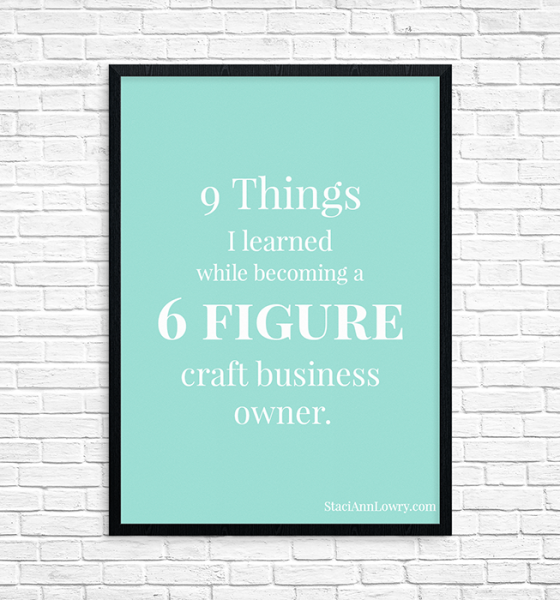This post is part of a series of articles that will teach you how to build your own website, step by step. You can read an overview of all of the steps, right HERE (plus get a printable checklist).
Choosing your domain name is the “pre-build” step in creating your own website.
But first, what exactly is a domain?
A domain name represents the address on the web where your website or blog will reside. This is what your visitors and customers will type into their address bar in order to find you.
Choosing a domain name can seem like a piece of cake… until you actually sit down to do it. Then it suddenly feels like an even more important decision than who you’re going to marry. After all, your domain name will be a representation of your brand, both to your customers, and to that Monster known as Google.
With that in mind, here are a few things you should consider when choosing your domain name:
• If you’ve already got an established shop/brand, go for the matching domain name if possible, and if it makes sense. However, don’t fret too much if your shop name is unavailable as a domain…it’s still possible to build a successful site that enhances your existing shop. (And, if you aren’t thrilled with the name of your shop, this might be a good opportunity to move into a new direction.)
• Try to get the .com extension if you can. This doesn’t affect your rankings with Google, but you do want to try for a .com if you can. Many people still automatically type in .com when they are trying to head somewhere online. You don’t want someone to wrongly make that assumption, only to possibly end up on a competing website.
A caveat: Don’t get too hung up on this. If you have the perfect name picked out but can’t manage to snag the .com, go ahead with the .net or .org extension instead. Just be sure that you always include that extension whenever and wherever you promote your site. You might even want to include it on any of your logos or promotional graphics. That way, you decrease the chances of someone forgetting it, and mistakenly assuming your site is a .com.
• Stay away from the cutesy word plays or clever misspellings. Even though it might seem easy for you to remember, keep in mind that newcomers to your site are not emotionally invested (yet!) in your brand like you are. So, they won’t be picking up on all the little details as quickly as you might hope they do the first time or two they’ve landed on your site.
The last thing you want is for a visitor who wants to revisit your site, to not be able to find it because they are typing in the “handmadeheadbandsforyou.com” instead of what might have seemed like a cleverly named “handmadeheadbandsforU.com” (Little side note: Please, pretty please, don’t use a horrible name like that anyway, no matter how you spell it.)
(The same thing applies 4 numbers as well.)
On the other hand, if you use a word in your domain that is commonly misspelled, consider buying the domain with the misspelled word, in addition to the domain spelled the correct way, and then re-directing it to the correctly spelled domain. That way, you won’t lose potential customers who do accidentally spell the word wrong.
• Don’t inadvertently limit yourself. Don’t get yourself stuck to only 1 subject or product by putting its specific name in your domain name. That “handmadeheadbandsforU.com” domain would really suck (even worse) if in one year from now, you decided to start adding barrettes and bobby pins to your product line.
• Put a focus on the benefits your product provides. If you are starting your business from scratch and don’t yet have a branded business name, try to think of a domain name that puts an emphasis on the benefits that your products provides to your customers. This helps to build an emotional connection for your customer with your brand.
• Keep it simple. It really is best to keep it simple and sweet. This will make your site easier to remember, cut down on the chances of misspellings and grammatical errors, and be the easiest to brand.
And remember, you don’t have to come up with some ingenious spin on words in order for your domain name to be catchy. You just need something simple and easy to remember.
Buying Your Domain Name:
You can buy your domain name from a domain registrar like GoDaddy (or someone else, if you prefer).
When you add your domain to your shopping cart, you will also be offered other extensions (.net, .info, etc…) as well. Should you buy those too? Well, I personally DO like to buy the .net, .org and sometimes the .info (they will usually serve these up to you in some kind of nice package deal). I just like to take that extra precaution against the occasional non-elusive copycat who likes to pop up here and there.
As far as all the other extensions they offer… don’t kill yourself trying to buy every single one. If you do want to buy any extras, just stick with those main few that I mentioned (.net, .org…). It would cost a small fortune to try and scoop up every single one, and some of them are so obsolete that it’s really not worth your trouble or coins.
Once you’ve purchased your domain, it will remain there in your account, and you can renew it each year or two (and don’t worry… GoDaddy will send you 37,000 emails between now and then reminding you to do it).
Little Side Note: When you are in the midst of checking out on the GoDaddy website, they will start offering you every product known to man or beast. It’s a little annoying, but just say no to everything, and it will eventually stop. You won’t need any of the extras.
After you’re all done checking out, you will receive a confirmation email from GoDaddy with all of your account information (make sure to save it).
And, now you’re ready to set up hosting for your new domain.
Let me know if you’ve got any questions!





Joe Syrowik
January 31, 2014Hi Staci,
Thanks for the great tips on what goes into creating an effective domain name. They all have value. Additionally, I believe one needs to be strategic when initially coming up with potential names. This means considering things like your mission statement, target audience, competition and reputation you’re trying to establish. It is then, at that point, where your tips can be best applied to make sure you don’t do something foolish. Hope this makes sense and thanks again for the post.
Joe